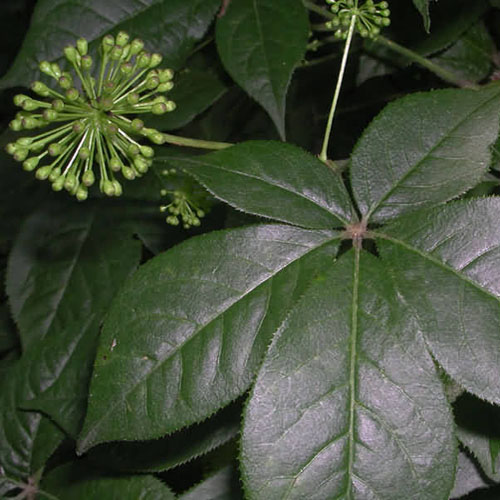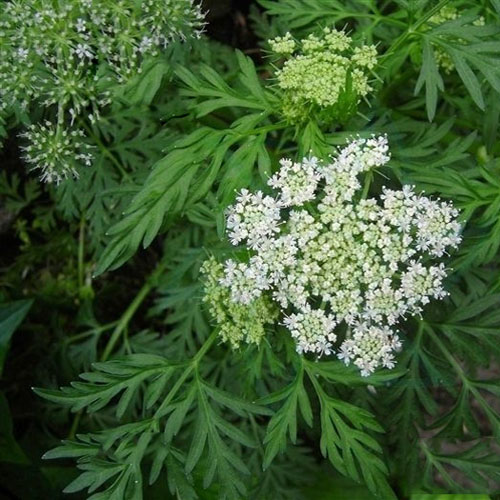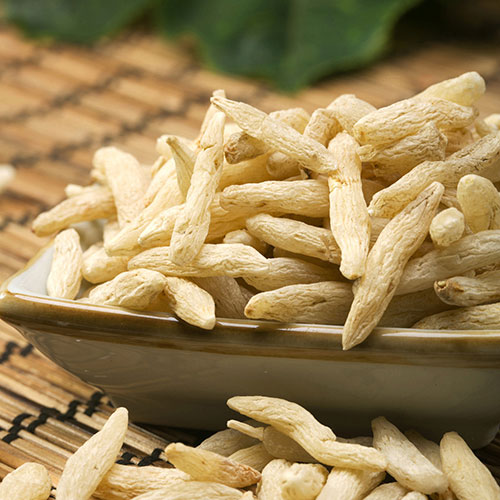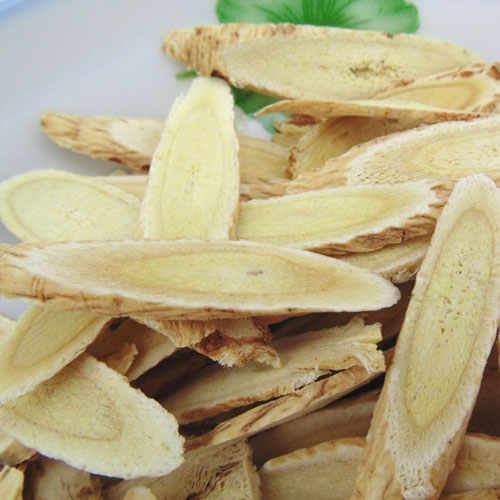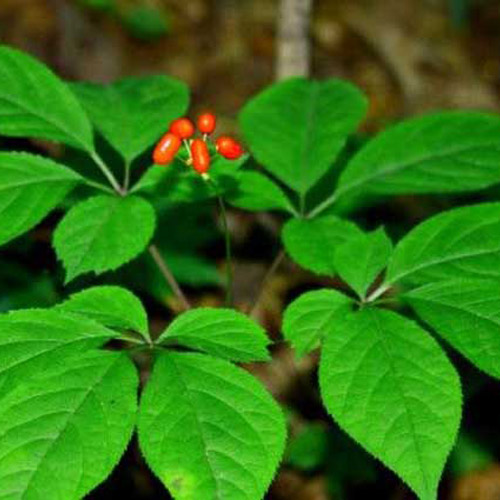- Chinese Name Ci Wu Jia 刺五加
- Latin Name Acanthopanax senticosus (Rupr.et Maxim.) Harms
- Other Names Eleutherococcus senticosus, Eleuthero
- Used Part Root
- Specification Powdered Extract
Siberian Ginseng Extract Powder
Description
What is Siberian Ginseng?
Famed as an energy tonic in China since ancient times, Siberian ginseng only gained recognition in the West in the 1950s, when a Russian scientist (I. I. Brekhman) reported its notable stress-repelling powers. Healthy men and women taking the herb were found to better endure physical strain, resist disease, and perform tests of mental sharpness.
Today, Westerners are perhaps most familiar with the plant’s botanical cousin Panax ginseng, but Siberian ginseng’s apparent ability to fight fatigue and alleviate myriad ailments has earned it an enthusiastic following. Many people use it the way traditional Chinese healers do–to reinforce the body’s vital energy (what the Chinese call qi). Others take it to enhance memory and ward off colds and flu. In Russia, millions of people use the herb as a general tonic.
Also known as eleuthero, supplements of the herb are made from the dried root of Eleutherococcus senticosus, a plant indigenous to China, Japan, Korea, and Siberia.
Health Benefits of Siberian Ginseng
Siberian ginseng contains remarkable compounds that favorably affect the adrenal glands, the small glands that rest atop the kidneys and secrete stress-fighting hormones. Taking the herb is believed to boost the body’s capacity to handle physical stresses ranging from heat exposure to extreme exertion. Resistance to disease increases as well. So does one’s overall energy level.
Specifically, Siberian ginseng may help to:
Prevent stress-related illnesses. Several studies have shown that Siberian ginseng can increase a person’s resistance to physical stresses. In a series of landmark Russian studies in the 1960s, 2,100 healthy adults (19 to 72 years old) given Siberian ginseng were shown to better handle stressful conditions. Specifically, they experienced an increased ability to perform physical labor, withstand motion sickness, and work with speed and precision despite being surrounded by noise. They could also proofread documents more accurately and more readily adapt to such physical stresses such as heat, high altitudes, and low-oxygen environments. Other research indicates that taking Siberian ginseng can heighten mental alertness and improve concentration.
Relieve chronic fatigue syndrome and fibromyalgia. Because Siberian ginseng bolsters the adrenal glands, it’s worth trying to relieve the exhaustion and muscle pain associated with these energy-depleting conditions.
Combat fatigue and restore energy. Siberian ginseng is popular for invigorating and fortifying the body. It appears to boost energy levels in people with constant exhaustion. Those recovering from an illness or weary from a heavy work schedule may also benefit from its energy-boosting and immune-enhancing powers. For otherwise healthy individuals–even athletes–the story is a little different, however.
In one study, 20 highly trained distance runners given Siberian ginseng failed to outperform similarly conditioned runners given a placebo when both groups raced against each other on treadmills. Not only did the Siberian ginseng-taking runners run no faster, they didn’t run for longer either.
Increase male and female fertility and reduce male impotence. By supporting healthy uterine function, Siberian ginseng may be useful in preventing female infertility. Males may experience an increased sperm count (rotate it with Panax ginseng for this purpose). Animal studies indicate that the herb can even boost testosterone levels and thus help reverse certain cases of male impotence.
Relieve menstrual disorders and menopausal symptoms. Siberian ginseng may positively affect hormone levels and tone the large uterine muscle. These properties make it potentially valuable for easing certain menstrual difficulties and menopausal symptoms.
Treat Alzheimer’s disease. Siberian ginseng may increase mental alertness, particularly in the early stages of this progressive disorder. The herb’s ability to boost the transmission of nerve impulses may also enhance memory.
Increase resistance to colds and flu. Historically, the Chinese have found Siberian ginseng to be effective in suppressing colds and flu. The herb’s immune-enhancing powers may play a role. Interestingly, a Russian study of 13,000 auto workers who took Siberian ginseng one winter showed that participants developed 40% fewer respiratory tract infections than they had in previous winters.
TCM Tradition
Taste & Property Acrid, Slightly Bitter, Warm
Organ Meridians Spleen, Heart, Kidney
TCM Functions
• Tonifies the Spleen and Stomach Qi to aid transformation and transportation and warms the Kidneys to aid Yang in warming the Spleen
– Weak lower back and legs
– A sense of heaviness with anorexia
– Fatigue
• Augments the Heart Qi and calms the Shen
– Heart Qi Deficiency with Insomnia with many dreams, poor concentration and mild depression
• Invigorates the Blood and unblocks the collaterals
– Problems due to poor peripheral circulation with Blood Stasis signs

